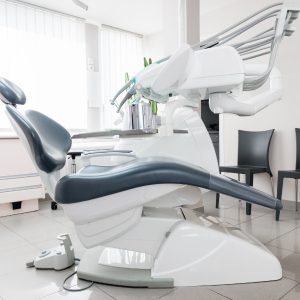Experiencing a dental emergency can be unsettling, but knowing you have a reliable dental care provider can make all the difference. At Albano & Greenwald Family Dentistry, we specialize in addressing urgent dental needs with speed and expertise. Whether it’s a severe toothache, an accident involving your teeth, or sudden discomfort in your gums, we’re here to provide immediate relief.
Located in Waterbury, CT, our office is equipped to handle various dental emergencies with the care and urgency they require. Don’t hesitate to contact us now and get the prompt and effective treatment you need.
What Constitutes A Dental Emergency?
Understanding what qualifies as a dental emergency can help you react swiftly and appropriately when the unexpected happens. Here are key indicators of situations that need urgent dental care:
- Severe toothache: Any sudden or severe pain in your teeth or jaw area is cause for concern.
- Loose or knocked-out tooth: Immediate action can potentially save a tooth.
- Bleeding that doesn’t stop: Prolonged bleeding from the gums or mouth.
- Swelling in the mouth or jaw: This could indicate infection or other serious conditions.
- Trauma to the mouth: Accidents causing cuts, lacerations, or damage to the teeth.
- Lost filling or crown: Exposed teeth can be painful and prone to damage.
If you experience any of these symptoms, it’s important to seek professional help immediately. Early intervention not only alleviates discomfort but also significantly increases the likelihood of a positive outcome.
Steps To Take In A Dental Emergency
When a dental emergency occurs, your response can significantly influence the outcome. Follow these structured steps to effectively manage the situation:
Immediate Assessment
First, evaluate the severity of the emergency. Look for signs like severe discomfort, significant bleeding, or visible damage to the teeth or gums.
Initial Care
- Severe tooth discomfort: Rinse with warm water; apply a cold compress to reduce swelling.
- Knocked-out tooth: Handle the tooth by the crown, rinse it gently without scrubbing, and try to reinsert it into the socket. If not possible, store it in milk or saliva.
- Persistent bleeding: Apply pressure with clean gauze or cloth. If bleeding continues, seek immediate care.
- Swelling: Use a cold compress on the cheek to help reduce swelling and ease discomfort.
Contacting Your Dental Care Provider
- Timing: Once you’ve managed the immediate situation, contact us without delay.
- Details: Provide clear information about the incident and symptoms.
- Follow through: Adhere to any interim care instructions given by our team while you prepare to come to the office.
These steps are designed to stabilize the situation until you can receive professional care. Acting swiftly and following these guidelines will help manage your emergency effectively and increase the likelihood of a positive dental outcome.
Emergencies We Treat
At our dental office, we are equipped to manage a variety of urgent dental situations. Here’s a breakdown of the common dental emergencies we treat and the initial measures you can take before reaching professional help:
Severe Tooth Pain
Severe tooth pain is often a sign of underlying issues such as cavities, infections, or gum disease. If you experience sudden or intense pain, rinsing your mouth with warm water and using a cold compress can help alleviate discomfort temporarily.
Gum Emergencies
Swelling, bleeding, or pain in the gums can indicate gum disease or infection. Gently rinsing your mouth with salt water can help soothe irritated gums until you receive professional care.
Traumatic Dental Injuries
Accidents can lead to chipped, cracked, or knocked-out teeth. If a tooth is chipped or cracked, save any pieces you can find. For a knocked-out tooth, follow the steps mentioned previously to increase the chances of saving the tooth.
Orthodontic Emergencies
Broken braces or wires can cause discomfort or injury to the inside of your mouth. If a wire breaks or protrudes, use the eraser end of a pencil to push the wire into a more comfortable position temporarily. Cover any sharp or protruding ends with dental wax or a small cotton ball until you can visit us.
Each of these situations requires prompt attention to prevent further damage or long-term oral health issues. By understanding what to do in these emergencies, you can act swiftly and effectively to minimize discomfort and improve the likelihood of a successful treatment outcome. If you experience any of these conditions, contact us immediately so we can provide the necessary care and guidance.
The Impact Of Neglecting Dental Emergencies
Ignoring dental emergencies can lead to severe complications and long-term damage to your oral health. Prompt treatment is crucial to prevent the following issues:
- Increased risk of infection: Dental infections can spread to other parts of the body, leading to serious health problems.
- Greater complexity and cost of treatment: What might initially be a simple treatment can become complex and costly if an emergency is ignored.
- Loss of teeth: Delaying treatment for traumatic injuries or infections can result in tooth loss.
- Compromised overall health: Oral health significantly impacts overall health. Neglecting dental emergencies can exacerbate conditions like diabetes and cardiovascular disease.
Addressing dental emergencies as soon as they occur is essential to maintaining your oral and overall health. Taking immediate action ensures the best possible outcomes and minimizes the risk of future complications.
Preventing Dental Emergencies
While not all dental emergencies can be avoided, taking proactive steps can significantly reduce your risk. Here are preventive measures to help keep your teeth and gums healthy:
- Regular dental check-ups: Visiting your dentist regularly for check-ups and cleanings is vital. These visits can help catch potential problems before they turn into emergencies.
- Proper oral hygiene: Brushing twice a day, flossing daily, and using mouthwash can help prevent decay and gum disease.
- Wear protective gear: Using mouthguards during sports can protect against tooth and mouth injuries.
- Avoid hard foods: Be cautious with hard candies, popcorn kernels, and ice, as these can crack or chip teeth.
- Educate on proper tools: Never use your teeth as tools to open, hold, or break objects.
Implementing these practices will help you maintain good dental health and decrease the likelihood of facing an emergency. However, should you encounter any issues, knowing how to respond and seeking immediate professional care will protect your dental and overall well-being.
Choose Expert Care For Your Dental Emergencies
When a dental emergency strikes, a quick and competent response from your dental care provider can make all the difference. At our office, we understand the urgency and the discomfort associated with dental emergencies. Our experienced team is committed to providing immediate, effective treatment to alleviate discomfort and address the cause of your emergency with compassion and expertise.
Choosing us for your emergency dental care means opting for a practice that prioritizes your health and comfort. We ensure that our patients receive the prompt attention they need in critical times, using the latest dental technologies and methods. Our goal is not just to treat dental emergencies as they occur but to offer solutions that enhance long-term oral health and well-being.
Remember, the right care at the right time can prevent further complications and lead to better health outcomes. For trusted, skilled emergency dental care, turn to us. We’re here to help you manage any dental crisis with the assurance that you’re getting the best possible care.
Ready to protect and enhance your dental health? Contact us today for all your emergency and routine dental needs! Let us be your partner in maintaining optimal oral health.


